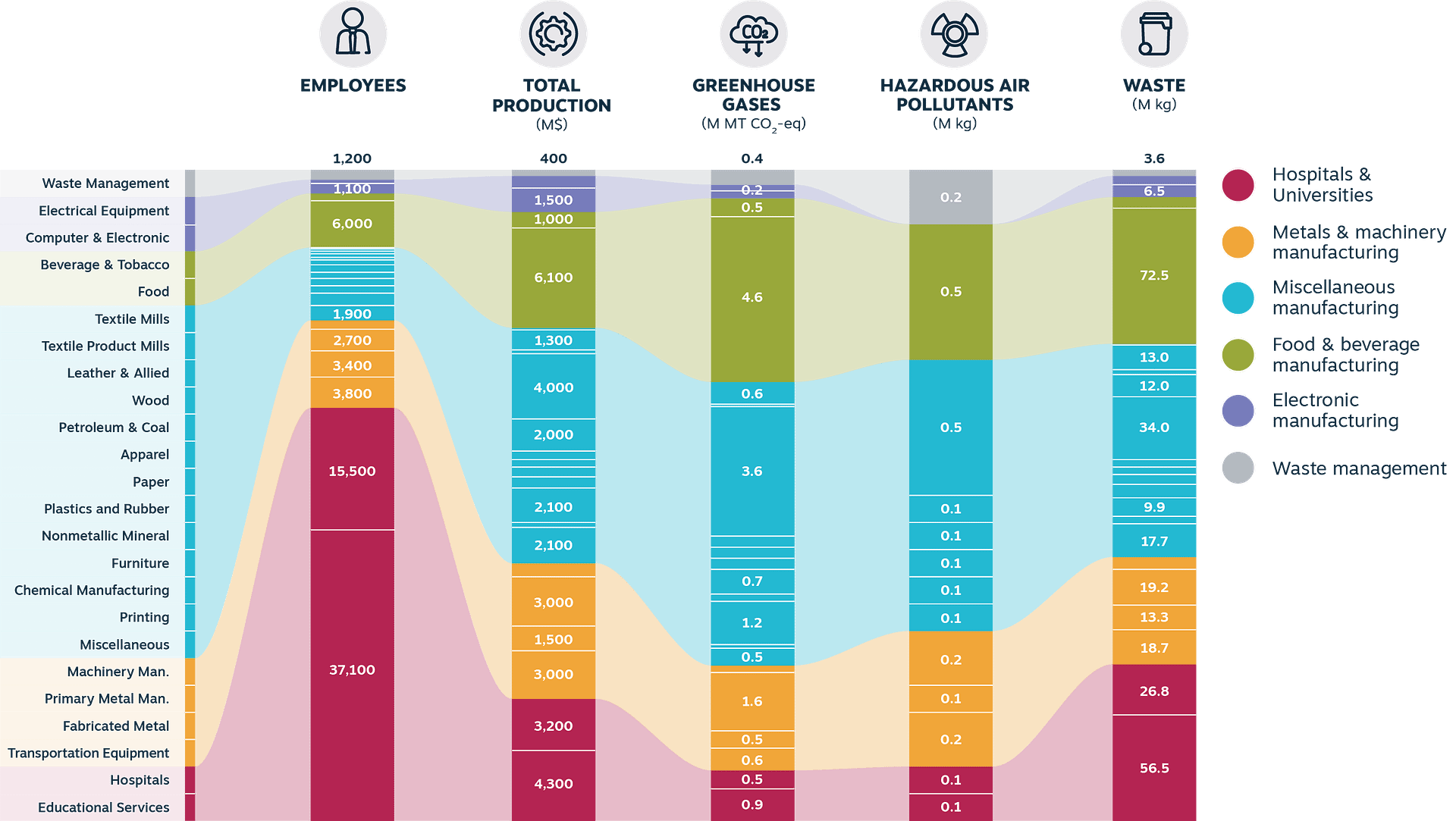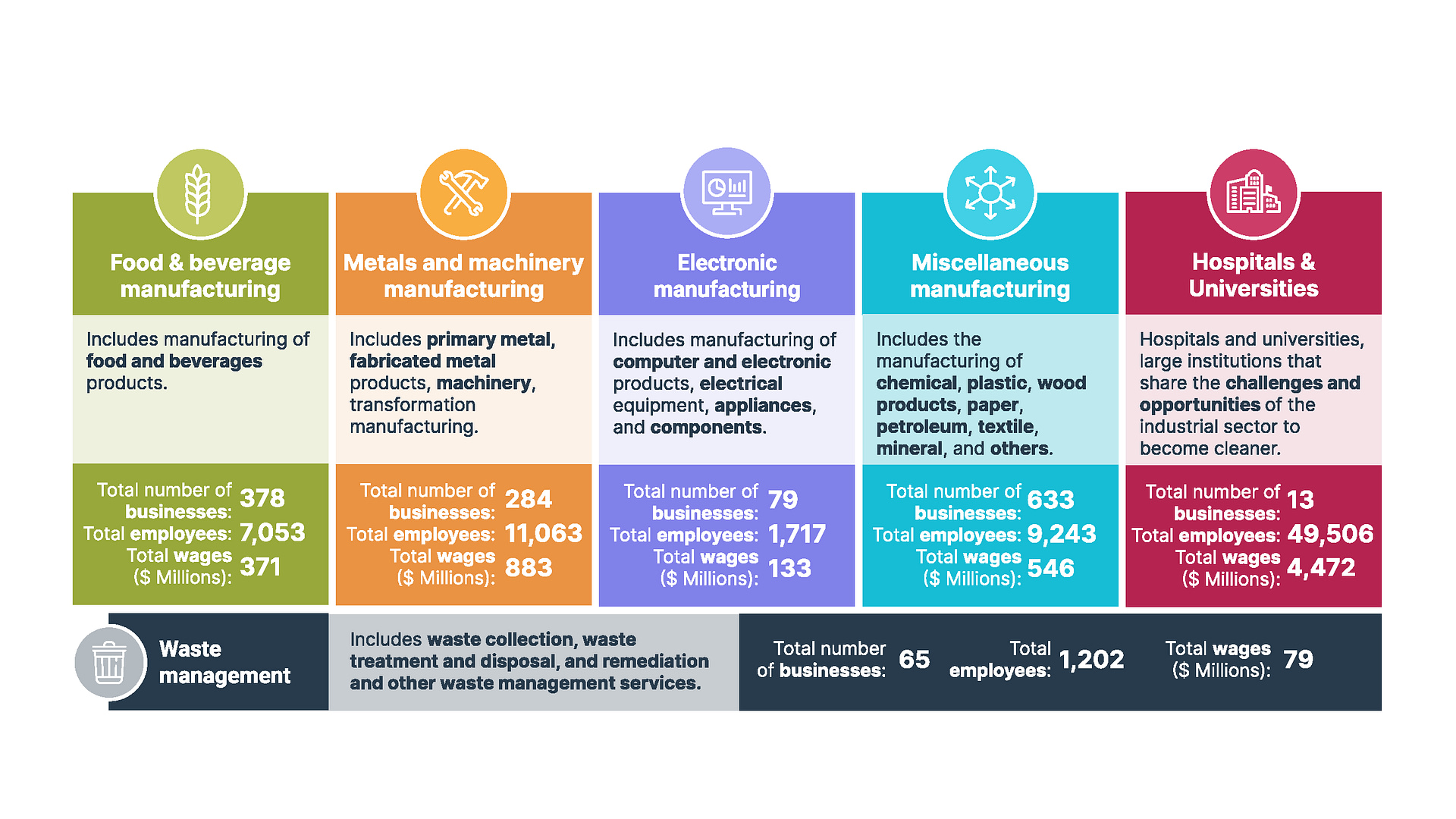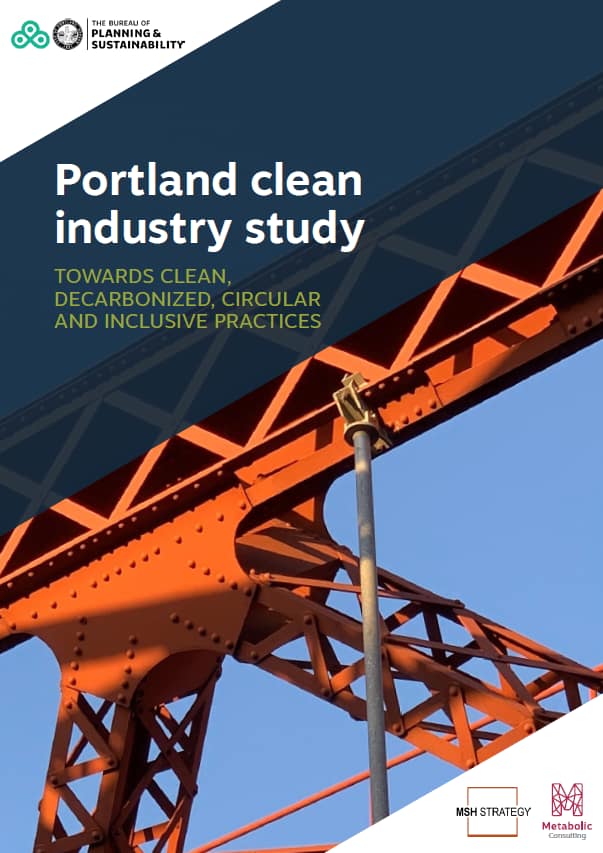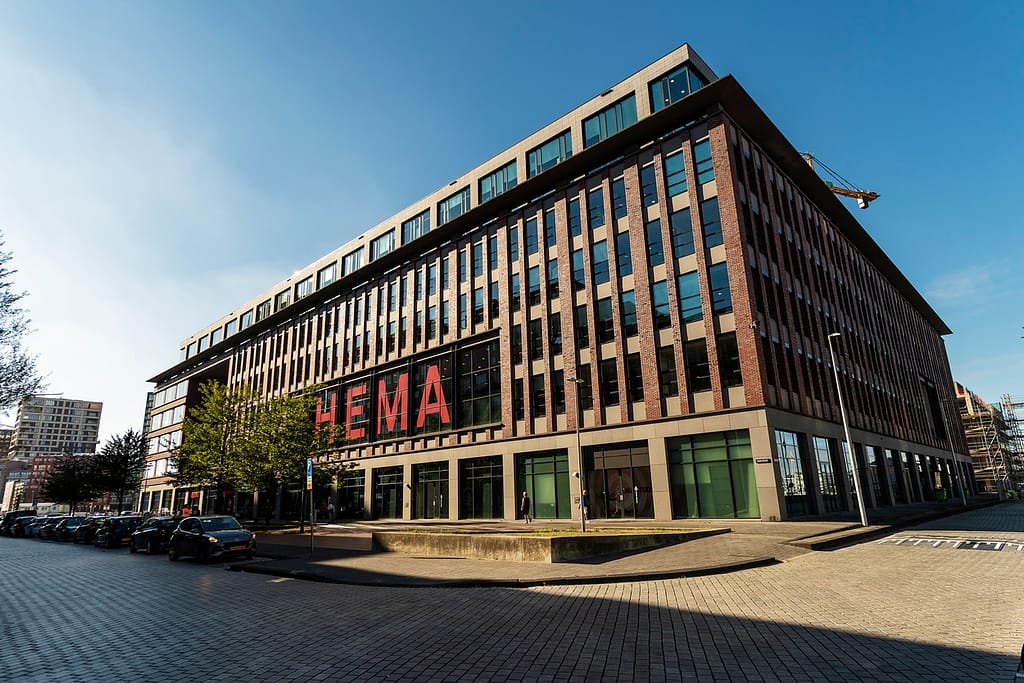Portland’s Clean Industry Hub
Toward clean, decarbonized, circular, and inclusive practices
This Clean Industry Assessment and Roadmap process provided valuable insight into Portland’s opportunity to transition to clean, decarbonized, circular, and inclusive industrial practices.
- Client: Portland, Oregon, USA
- Partner: MSH Strategy
- Date: September 2022 – June 2023
Understanding the impact of the overlooked industrial sector
The City of Portland is deeply committed to fostering a sustainable and prosperous future. Despite the city’s progress, the industrial sector has often been overlooked. In collaboration with Metabolic and various public and private stakeholders, Portland started a journey to understand the impact of diverse industries on its sustainability goals. The objective was to jointly craft a roadmap for fostering sustainable industrial development, thereby establishing new benchmarks for both the industrial sector and the city’s sustainable aspirations.
A comprehensive assessment to answer vital questions
This project centered on clean, decarbonized, circular, and inclusive practices within the industrial landscape. It kicked off with a comprehensive assessment of Portland’s industrial landscape, environmental impact, prevailing practices, and insights from successful global clean industry hubs.
The current global economic system pushes the planet’s limits, necessitating a fresh approach where the cornerstone is a sustainable economy, meaning:
- Clean Practices: Adopting clean technologies and energy to limit environmental impacts and enhance sustainability.
- Decarbonized Practices: Minimizing carbon footprints across all emissions scopes — direct, indirect, and value chain emissions.
- Circular Practices: Transitioning away from the linear “take-make-waste” model to preserve resources and reduce societal burdens.
- Inclusive Practices: Prioritizing diversity, equity, and inclusion within organizations to create inclusive workspaces.
Opportunities within six industrial sectors
We analyzed six industrial subsectors, and identified areas where each could reduce greenhouse gas emissions, pollution, and waste:
- Food and beverage manufacturing: This subsector is high in waste, carbon emissions, and air pollutants, and is ideal for an integrated approach.
- Metals and machinery manufacturing: This subsector generates high CO2 and waste heat that could be productive for other sectors.
- Electronic manufacturing: Water use has a significant impact in this subsector.
- Miscellaneous manufacturing: There is a focus on textile outputs, which represent some of the highest-impact waste streams.
- Hospitals and universities: The high volumes of waste could be recycled and/or reused.
- Waste management: There are opportunities to reduce or repurpose waste for all sub-industries.
Our study also identified seven core strategies for a successful clean industry hub, including a robust business support ecosystem, connections between industry and higher education, transformative investments, supportive policy and regulation, a strong brand and community engagement, funding, and effective collaboration structures.
Portland now plans to focus on ramping up financing and policy and implementing the study’s top recommendations.






Director of Sustainable Cities & Regions
ANY QUESTIONS?
For more information about this project, please get in touch.






